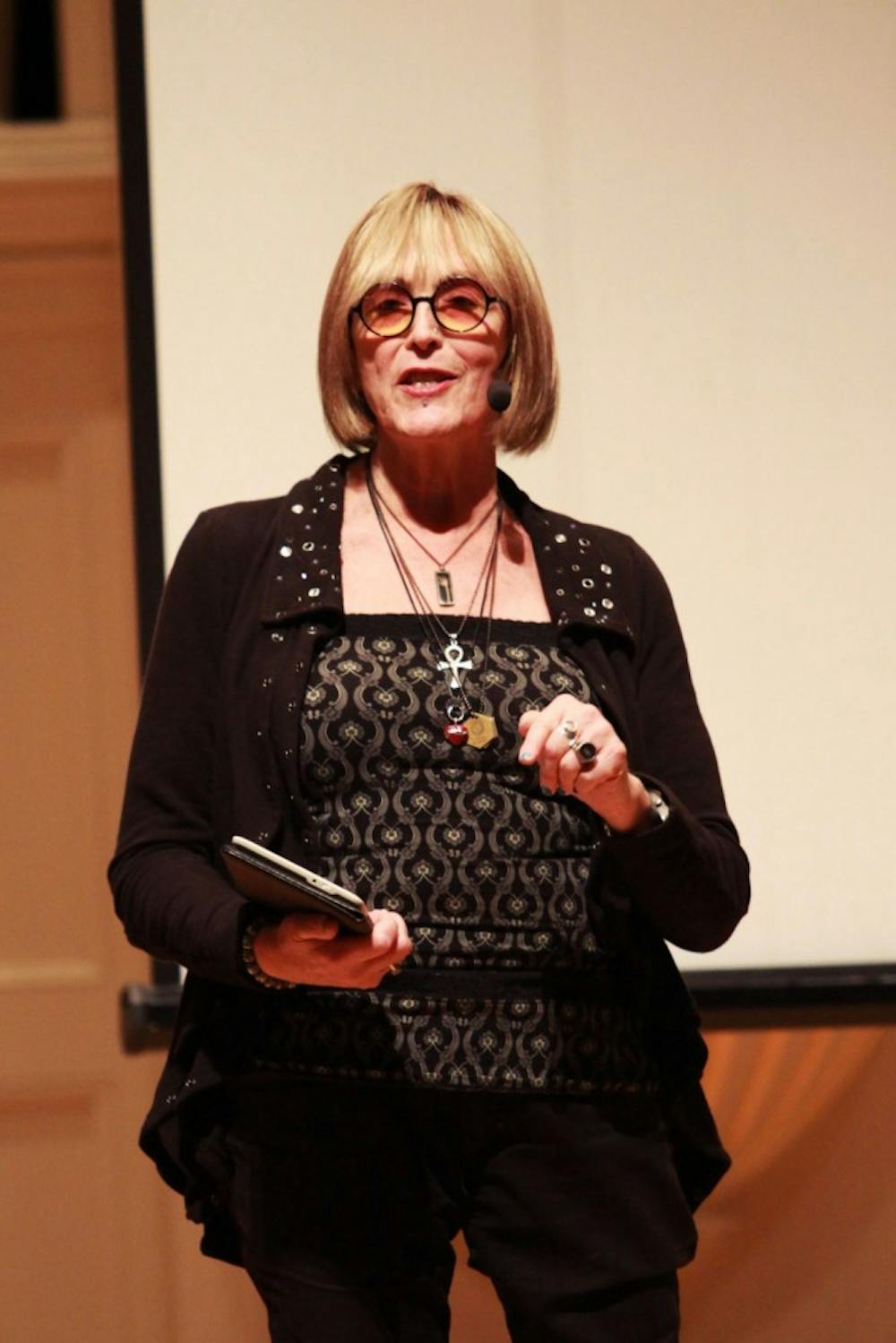She was a hippie that didn’t grasp the peace movement. A phone sex hostess with the voice of a man. A daughter who used to be her mother’s son.
Throughout her life, author and playwright Kate Bornstein, 64, has been a contradiction. And now, she’s best known for what she’s not.
“I am not a man; I am not a woman,” Bornstein said in a speech Thursday night at Elon University. “I’ve got a girl body, but it doesn’t make me a girl. It doesn’t make me a woman.”
Through a series of personal anecdotes and dramatizations, Bornstein illustrated her physical evolution from a man to a woman and her emotional evolution from hopeless confusion to contented ambiguity.
Bornstein was born a boy into a largely patriarchic Jewish family. Giving birth to two sons was a source of pride for her mother, she said. But her pride gave way to denial when she announced a plan to undergo sex-change surgery.
Bornstein made the decision when she was 38. For 38 years, Bornstein searched for an identity within the body of a man. For 38 years, she found nothing.
“I never went to bed one night of my life knowing that I was a man,” she said. “I never went to bed one night of my life knowing that I was a woman.”
She found no identity in an eighth grade English lesson on pronouns, no identity in the dictionary and no identity in religion. She filled the void with food, drugs and alcohol, vices that gave way to eating disorders, depression and suicidal tendencies, she said.
“I’ve been suicidal six times in my life,” Bornstein said. “But I always found something to do instead, something that made life more worth living at the moment.”
But she soon recognized the need for a more permanent change.
"I shed my addictions like a snake sheds it skin, until it was just me and who I thought I was,” Bornstein said. “When I went though that sex change, I thought I was finally going to find some peace. I thought (I was) finally going to find my contentment.”
The surgery, however, cost her more than just her male physiology. The Church of Scientology, to which she dedicated 12 years of her life, labeled her as a “suppressive person.” Her daughter from a previous heterosexual marriage, a devout Scientologist, ceased communication with her. Her ex-wife refused to take her calls.
But Bornstein embraced the change and her sexual uncertainty. Through articles, plays and books, she publicized her experience living as both a male and a female at once. Her works helped promote and advance the transgender movement, she said.
“What I’m talking about up here is not a universal transgender experience,” she said. “I am a male-to-female transition, something in the realm of being a girl. But I don’t understand the people who want me to man up. I don’t understand the people who want me to just be a woman. I’ve come to the conclusion that it’s not worth all the trouble.”


